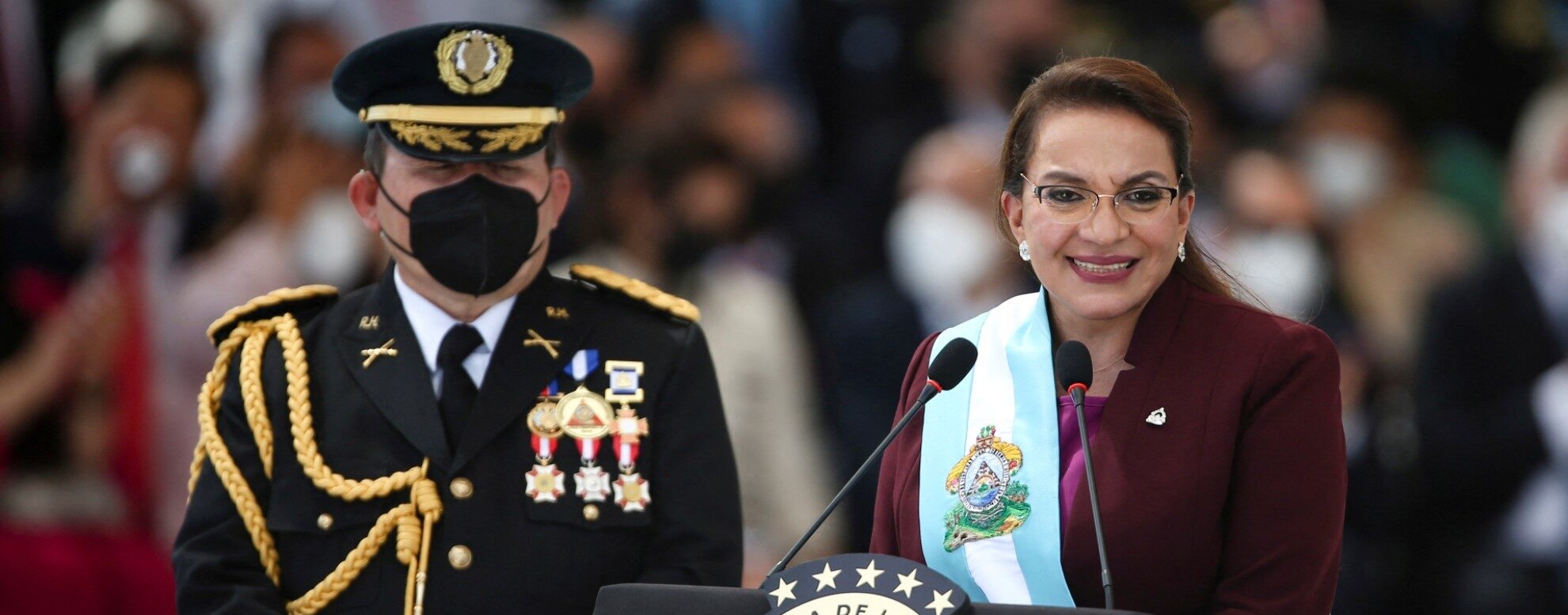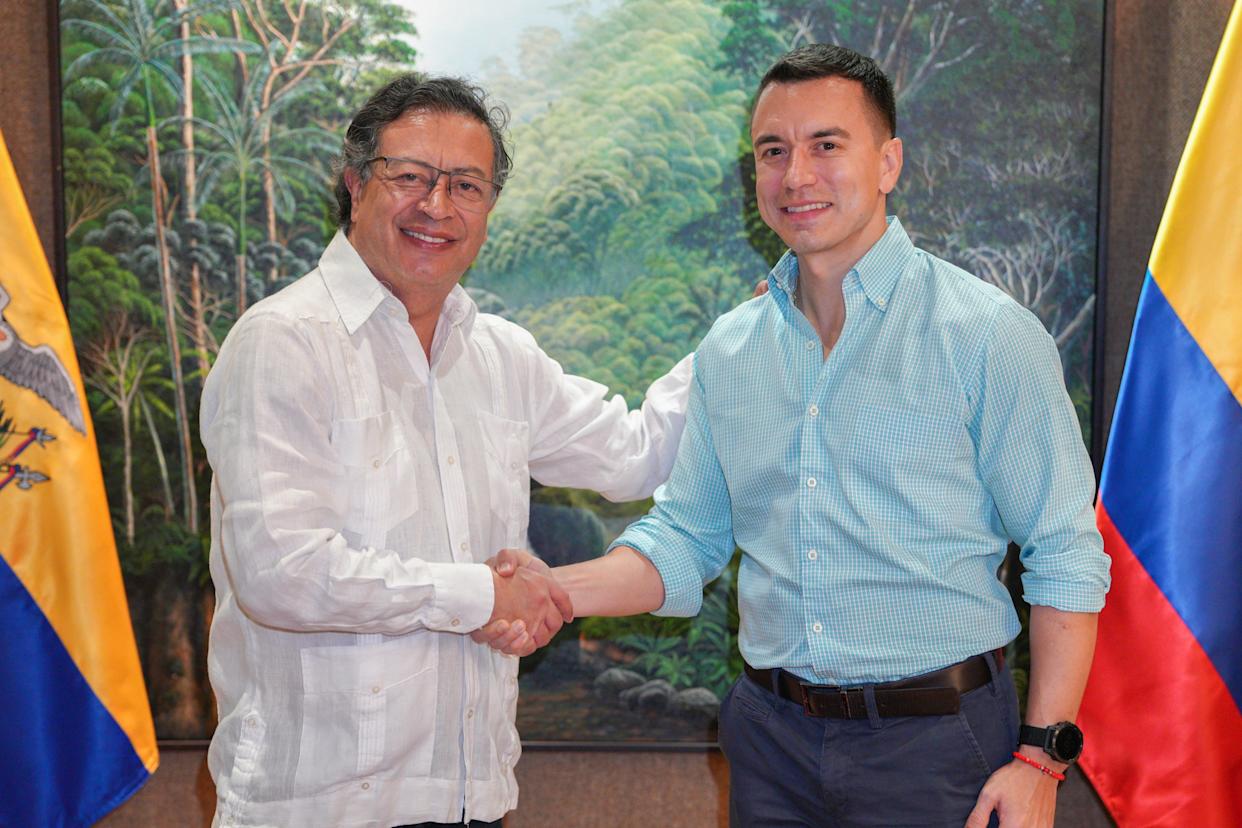Central America
Honduran president grants amnesty to husband’s allies

AFP
Honduras’ new president, leftist Xiomara Castro, who came to power promising to fight corruption, granted amnesty Saturday to many officials who served in her husband’s government more than a decade ago.
Manuel Zelaya was president from 2006-2009 until he was ousted.
The measure was approved on Thursday by the legislature led by Luis Redondo, a Castro loyalist, amid an ongoing dispute with a rival congressional faction over who should lead the body.
Despite that, Castro has pushed ahead with the amnesty and the measure was published Saturday in the Official Gazette, which gave it force of law.
The move drew criticism even from her new special advisor on transparency.
The unconditional amnesty is for officials who served in her husband’s government and those who were imprisoned for demonstrating against the re-election of President Juan Orlando Hernandez in 2017. He was Castro’s predecessor.
Zelaya was overthrown in 2009 by a civic-military alliance, which questioned his closeness to Venezuela’s socialist government.
Anti-corruption activists have claimed Castro’s pardons could cover the past deeds of people who engaged in corruption.
Castro replaced the right-wing Hernandez, who left power dogged by allegations of drug trafficking and corruption in a country where at least 60 percent of the 10 million inhabitants live in poverty.
Elected in November, the country’s first woman president faces an uphill struggle to reform a country with one of the highest murder rates in the world. Tens of thousands of its citizens have tried to flee to the United States.
Central America
Nicaraguan Exiles to Mark 7th Anniversary of 2018 Protests with Global Commemorations

The Nicaraguan opposition in exile announced on Thursday that it will commemorate the seventh anniversary of the April 2018 protests against the government of President Daniel Ortega and his wife, Rosario Murillo, with events in Costa Rica, the United States, and several European countries.
The commemorative activities—which will call for justice for the victims, as well as freedom and democracy for Nicaragua—will include religious services, public forums, cultural fairs, and other public gatherings, according to official announcements.
In April 2018, thousands of Nicaraguans took to the streets to protest controversial reforms to the social security system. The government’s violent response quickly turned the demonstrations into a broader call for the resignation of President Ortega, who is now 79 and has been in power since 2007.
The protests resulted in at least 355 deaths, according to the Inter-American Commission on Human Rights (IACHR), although Nicaraguan organizations claim the toll is as high as 684. Ortega has acknowledged “more than 300” deaths and maintains the unrest was an attempted coup d’état.
International
Arsenal stun Real Madrid at the Bernabéu to reach Champions League semifinals

Arsenal enjoyed a “historic night” on Wednesday after defeating Real Madrid 2-1 at the Santiago Bernabéu, knocking them out of the Champions League quarterfinals, midfielder Declan Rice said.
“It’s such a special night for this club, a historic night for this club,” said Rice, who scored twice in the first leg in London, speaking to TNT Sports.
The English international was named Man of the Match in both legs — the 3-0 win in London and the second leg in Madrid.
“It’s amazing. I knew we were on an upward trajectory and we’ve done incredibly well in this competition. We deserve it and we have full confidence in our coach. Reaching the semifinals is unbelievable,” Rice added.
Central America
Petro questions Ecuador’s vote, cites reports of military control and arrests

Colombian President Gustavo Petro said Tuesday he had received “concerning” reports regarding Ecuador’s presidential runoff election held last Sunday, and called for greater transparency—drawing a parallel with Venezuela.
“Colombian observers were sent to Ecuador’s elections. The reports I’ve received are troubling,” Petro wrote on his official account on X (formerly Twitter).
Ecuadorian President Daniel Noboa secured reelection in the second round with 55.6% of the vote, defeating correísta candidate Luisa González, who received 44.4%. The election results were endorsed by international electoral observer missions from the European Union and the Organization of American States (OAS).
Petro pointed to alleged irregularities, stating: “Leonidas Iza, an Indigenous former candidate, was detained days before. Areas with a majority of opposition support were placed under a state of emergency and military control two days before the election.”
-

 Central America4 days ago
Central America4 days agoHonduran Police Offer $135K for Tips Leading to the Arrest of Romeo Vásquez
-

 Central America3 days ago
Central America3 days agoPetro questions Ecuador’s vote, cites reports of military control and arrests
-

 International4 days ago
International4 days agoMPV Denounces Electoral Blockade as Secretary-General is Disqualified for May Elections
-

 International2 days ago
International2 days agoArsenal stun Real Madrid at the Bernabéu to reach Champions League semifinals
-

 International4 days ago
International4 days agoMaduro Plans Major Workers’ March on May 1st to Defend Venezuela’s Freedom
-

 International2 days ago
International2 days agoBogotá residents line up for yellow fever vaccine amid national alert
-

 International1 day ago
International1 day agoDominican ‘False Hero’ Arrested for Faking Role in Nightclub Collapse That Killed 231
-

 International2 days ago
International2 days agoDeSantis’ immigration crackdown sparks alarm in Venezuelan Communities in Doral
-

 Central America1 day ago
Central America1 day agoNicaraguan Exiles to Mark 7th Anniversary of 2018 Protests with Global Commemorations
-

 International2 days ago
International2 days agoMexico refuses to restore ties with Ecuador while Noboa remains in office
-

 International3 days ago
International3 days agoColombia: Search continues for missing limb of italian scientist found dismembered















